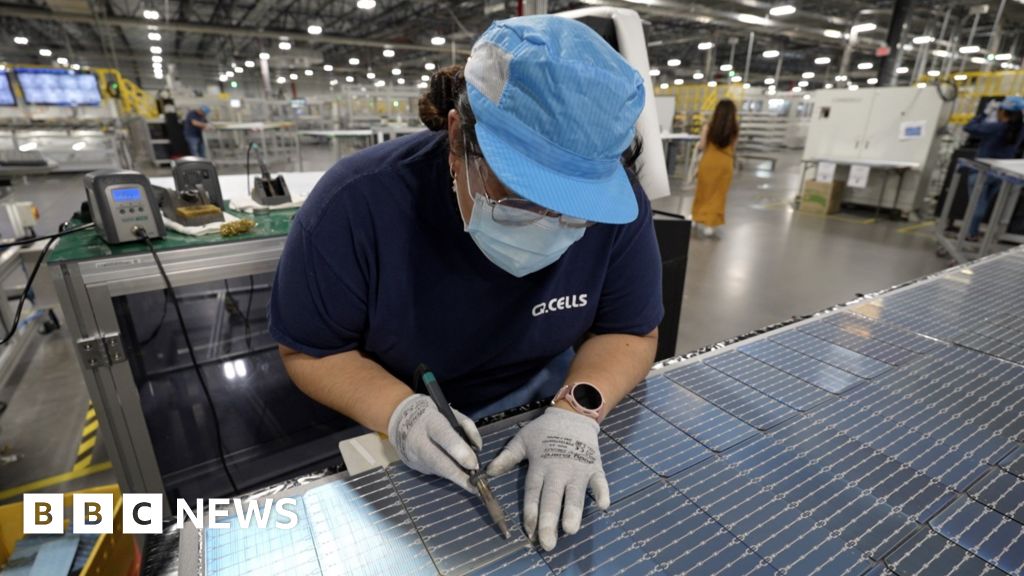In Dalton, Georgia, historically known as the “carpet capital of the world,” a significant economic transformation is underway. Qcells, a Korean company, is investing $2.5 billion to expand its solar panel factory, with promises of another facility on the horizon.
This bold venture is set to create 2,500 jobs within the next year, a significant boost for an area where household incomes are 27% below the national average. The project aims to rejuvenate a region that has seen better days.
Impact of the Inflation Reduction Act
The initiative is partly credited to President Joe Biden’s 2022 Inflation Reduction Act (IRA), which offers extensive tax incentives and loans to spur American clean energy manufacturing. The IRA is the most ambitious climate legislation in US history, triggering a wave of private sector investments.
Georgia has been a key beneficiary of these investments. Despite this, President Biden’s support in the state remains unchanged ahead of the impending presidential election against Donald Trump.
Growing Clean Energy Jobs
Biden’s strategy aims to address climate issues while creating jobs. Since the IRA’s implementation, the US has seen the creation of over 300,000 clean energy jobs, according to Climate Power. This job creation is evident in Dalton, where foreign and government investments are fostering economic growth.
Local Reaction
Scott Moskowitz, head of market strategy for Qcells, noted that the IRA significantly accelerated their expansion plans. However, local sentiment remains mixed. Jan Pourquoi, spokesperson for the Whitfield County Democratic Party, highlighted local resentment towards Qcells for benefiting from government subsidies while other businesses do not.
Marjorie Taylor Greene, the district’s Republican congressional representative, has promoted Qcells’ expansion despite opposing the IRA. This situation presents a challenge for Republicans, as potential rollbacks on the IRA could impact local clean energy investments.
Republican Perspectives
Dalton’s Republican State Representative, Kasey Carpenter, played down the potential impact of rolling back manufacturing tax credits on Qcells. He suggested it would not jeopardize solar investments in his district, indicating a willingness to engage with the Trump administration if needed.
The shift from carpet manufacturing to solar panel production symbolizes Dalton’s evolving identity. However, it also underscores broader geopolitical dynamics. China currently dominates 80% of the global solar panel supply chain and continues to invest heavily in renewable energy.
Global Competition
In response, global governments are investing billions in green industries. The EU is expected to invest $370 billion in clean energy in 2024, while the US plans to allocate $315 billion, according to the International Energy Agency (IEA).
The Biden administration is targeting these investments in traditionally Republican states, aiming to foster a manufacturing revival ahead of the presidential election.
Transformative Local Impact
For workers like Alan Rodriguez at Qcells, the shift from local carpet mills to solar manufacturing has been transformative. Rodriguez, who started in an entry-level position, has advanced to the engineering team, a progression he never imagined in the flooring industry.
President Biden is banking on such success stories to help sway red states in his favor come November.
Original Story at www.bbc.com
